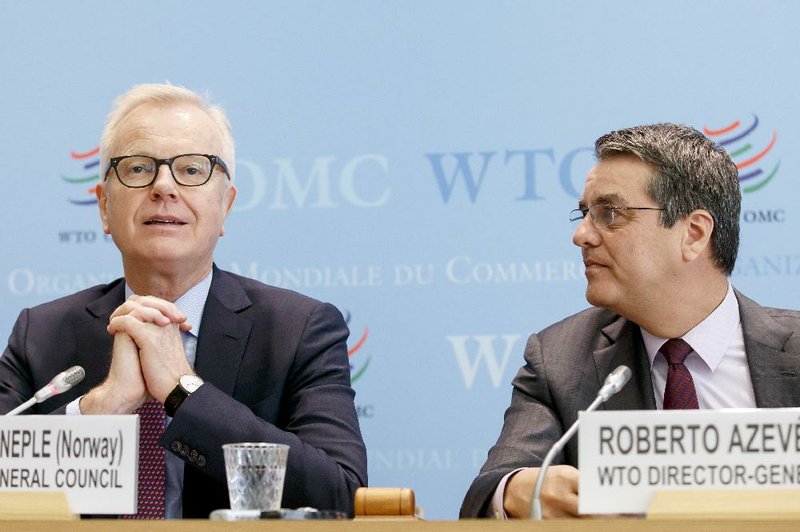GENEVA -- The first multilateral trade agreement reached under the World Trade Organization since the body was created more than 20 years ago has taken force, aiming to streamline cross-border trade to the benefit of the developing world in particular.
Organization Director-General Roberto Azevedo said Wednesday that the required two-thirds of member states have ratified the accord. He said estimates show that full implementation of the deal would reduce trade costs globally by an average of more than 14 percent.
"This is fantastic news," he told reporters at the organization's headquarters in Geneva.
The organization's multilateral trading system has been called into question since U.S. President Donald Trump told Republican lawmakers last month that he'd prefer bilateral agreements with 30-day opt-out triggers.
Azevedo said he had not spoken with any U.S. administration officials on trade, but he noted that the U.S. was among the first countries to ratify the agreement.
"This deal is about lowering trade costs, and as far as I know, all countries, all [World Trade Organization] members -- are in favor of that, regardless of what their domestic situation is at any point in time," he said.
He noted that the United States was involved in pushing for the conclusion of the agreement, adding, "I don't see any reason why that should change at this point in time."
"I do not think we are facing anything that is unmanageable," he said of the U.S. concerns about possible unfair trade. "I honestly don't know what kind of trade policy will come."
The Trade Facilitation Agreement, concluded in 2013, aims to cut red tape and speed up the flow of goods across borders, such as by prioritizing perishable goods and releasing products before customs duties are levied. It will also help World Trade Organization member states accept e-payments, limit export and import fees, and harmonize trade standards.
The organization says the agreement could add 2.7 percentage points per year to world trade growth by 2030.
In a statement, the International Chamber of Commerce hailed a "watershed moment" for world trade and said the agreement could "provide a boost to global trade flows of over $1 trillion."
Business on 02/23/2017
